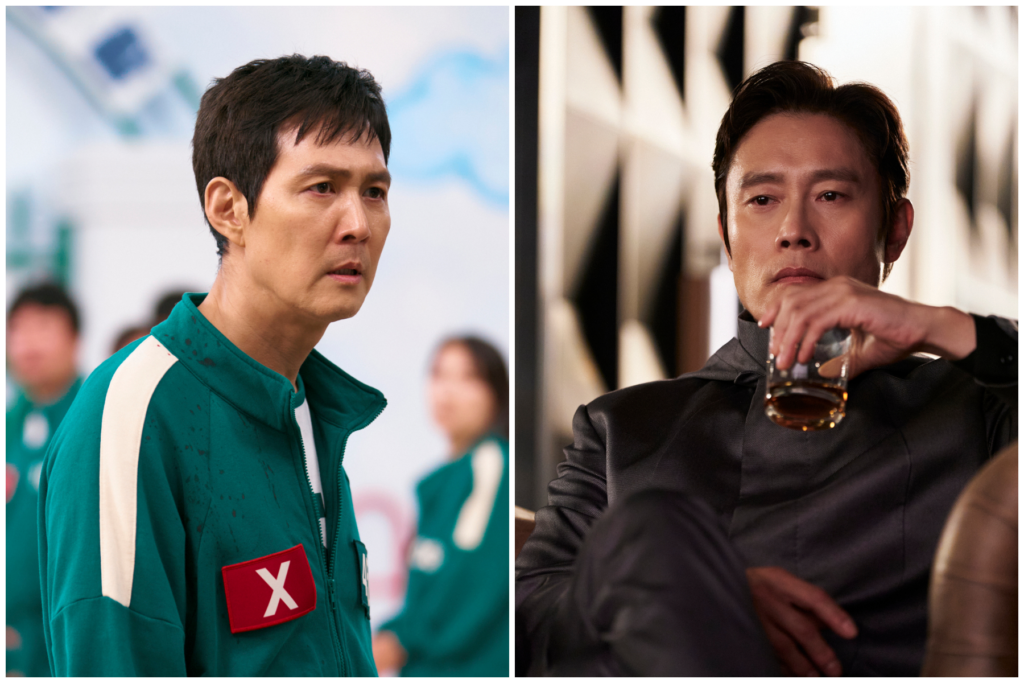NEWS
Squid Game Season 2 Finale Shocks Fans with Twists and Betrayals
The worldwide sensation Squid Game has left fans staggered with the stunning finish of its second season on Netflix. The seven-episode curve of Season 2 finished on a frightening note, with hero Gi-hun (Lee Jung-jae) seeing the ruthless homicide of his closest companion, Jung-bae (Lee Website design enhancement hwan), because of The Front Man (Lee Byung-hun). This significant second denotes a tragic peak as well as makes way for the exceptionally expected third season, which vows to dive further into subjects of treachery, misfortune, and versatility.
All through Season 2, Gi-hun’s process is set apart by rehashed disappointments in his endeavors to destroy the vile Squid Game framework. His endeavors to penetrate the association by establishing GPS beacons, energizing hired fighters, and persuading players to decide in favor of opportunity all end in destroying routs. The disobedience he sorts out with the leftover players finishes in misfortune when The Front Man uncovers his actual personality, breaking Gi-hun’s trust and trust. Jung-bae, who remained by Gi-hun all through their experience, is brutally executed before him as discipline for their revolt. The heaviness of this second isn’t lost on the crowd, who are conscious of The Front Man’s actual personality: In-ho, a past champ of the Squid Game who presently upholds its merciless guidelines.
Maker Hwang Dong-hyuk made sense of that the choice for end Season 2 with such a bleak turn was deliberate. As indicated by Hwang, the narrative of Seasons 2 and 3 was at first considered as a solitary bend yet demonstrated excessively broad for one season. Parting the story permitted him to zero in on Gi-hun’s personal process, utilizing Jung-bae’s passing as a defining moment. “At the point when you see Gi-hun’s story, each of his endeavors to stop the game — whether it’s establishing a GPS beacon, convincing players to cast a ballot, or driving a defiance — eventually fizzle,” Hwang said. “These disappointments move toward the second where he loses his closest companion, leaving him in a profound emergency. This snapshot of weighty responsibility and disappointment will shape Gi-hun’s direction in the third season.”
The profound cost of Jung-bae’s passing is intensified by the disclosure of The Front Man’s character. In-ho had spent the season acting like Player 001, utilizing the pseudonym Youthful il to acquire the trust of Gi-hun and Jung-bae. His double-crossing highlights the all-encompassing topics of control and trickery that characterize the series. For Gi-hun, the deficiency of Jung-bae is in excess of an individual misfortune — it addresses the devastating load of his failure to safeguard those he thinks often about. This makes way for Season 3, which will investigate how Gi-hun faces his culpability and chooses whether to proceed with his main goal or leave it out and out.
Hwang indicated that Season 3 could debut as soon as summer or fall one year from now. While he avoided uncovering explicit plot subtleties, he guaranteed fans that the account would advance unexpectedly. “Gi-hun won’t be a similar individual he was in Season 2,” Hwang said. “The third season will introduce him at a basic junction, wrestling with misfortune and disappointment. His decisions will decide the bearing of the story as it arrives at its decision.”
The post-credits scene toward the finish of Season 2 offers a tempting look into what lies ahead. The clasp presents new male and female forms of the famous “Red Light, Green Light” dolls, indicating a rethought Squid Game. While Hwang declined to expand on the scene’s importance, he urged fans to examine it for pieces of information about what’s to come. This advancement proposes that the game’s design and elements might move in Season 3, especially considering the resistance that upset the framework in Season 2.
Pondering the development of Season 2, Hwang refered to the pentathlon — a series of five youngsters’ games consolidated into one — as the most difficult and remunerating succession to film. The pentathlon exhibited conventional Korean games as well as featured the imaginative and calculated intricacies of the series. “It was an opportunity to bring five games into a solitary round, which was both troublesome and thrilling to shoot,” Hwang said. “The outcome was a succession that I’m especially pleased with.”
The finish of Season 2 leaves watchers with many inquiries. How might Gi-hun explore his anguish and culpability? Might he at any point figure out how to defeat the apparently impossible difficulties presented by The Front Man and the game’s coordinators? What’s more, how might the presentation of new components, like the advanced game arrange, influence the story’s direction? These unanswered inquiries fuel expectation for Season 3, which vows to convey a grasping and sincerely charged continuation of Gi-hun’s excursion.
Hwang guaranteed fans that the last season would expand on the force and intricacy of its ancestors. “With each season, the story turns out to be more broad and drawing in,” he said. “The end will convey the result that watchers merit, with an account that gets better with each episode.” As Squid Game pushes toward its finale, it keeps on enamoring crowds with its mix of profound profundity, high-stakes show, and unpredictable narrating.
For the present, fans can hypothesize about what’s in store for Gi-hun and the universe of Squid Game. The series has set its place as a social peculiarity, investigating the most obscure corners of human instinct while conveying extraordinary exciting bends in the road. With the commitment of a significantly more serious and genuinely full last section, Squid Game remaining parts a masterclass in narrating that keeps watchers as eager and anxious as can be.